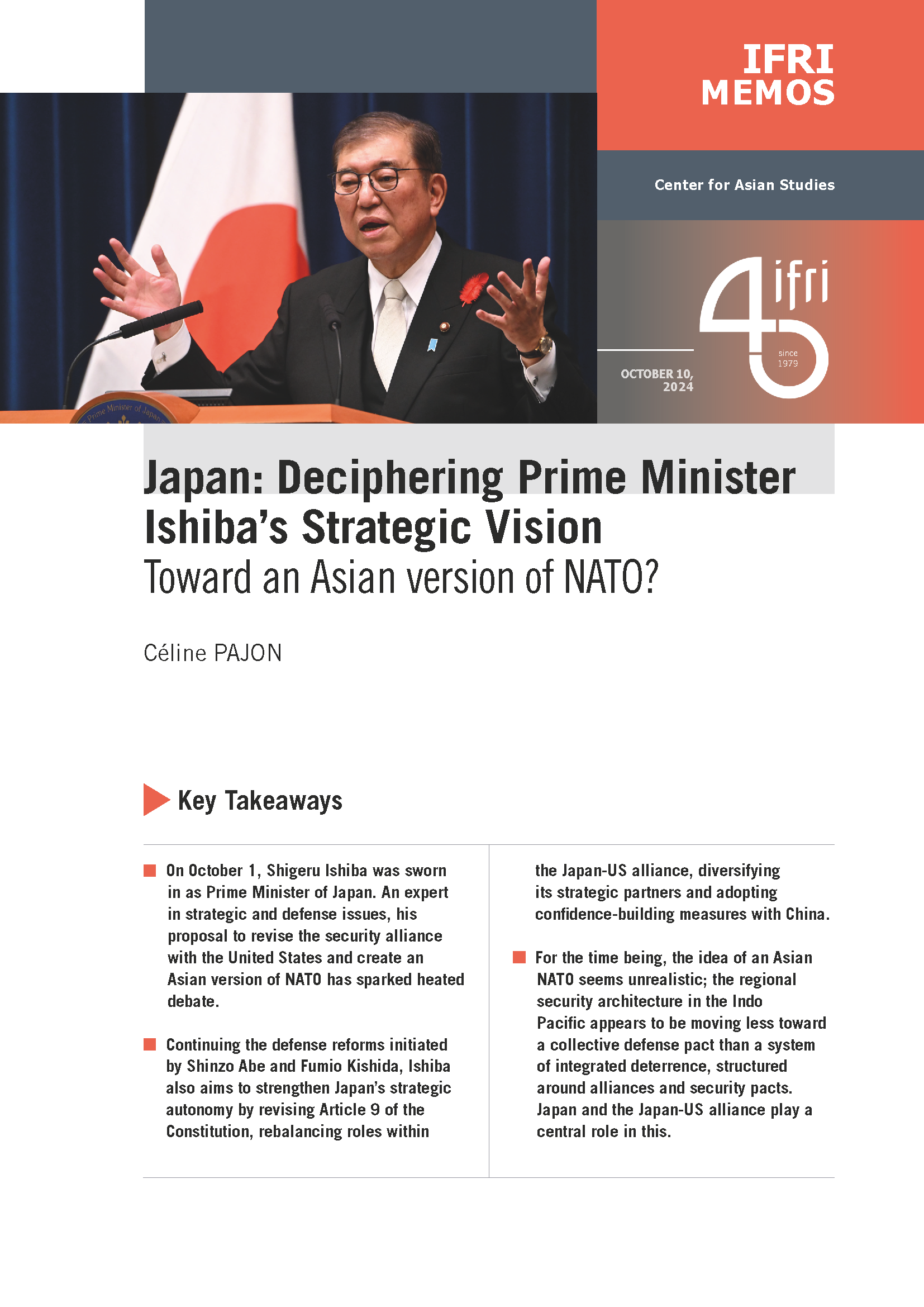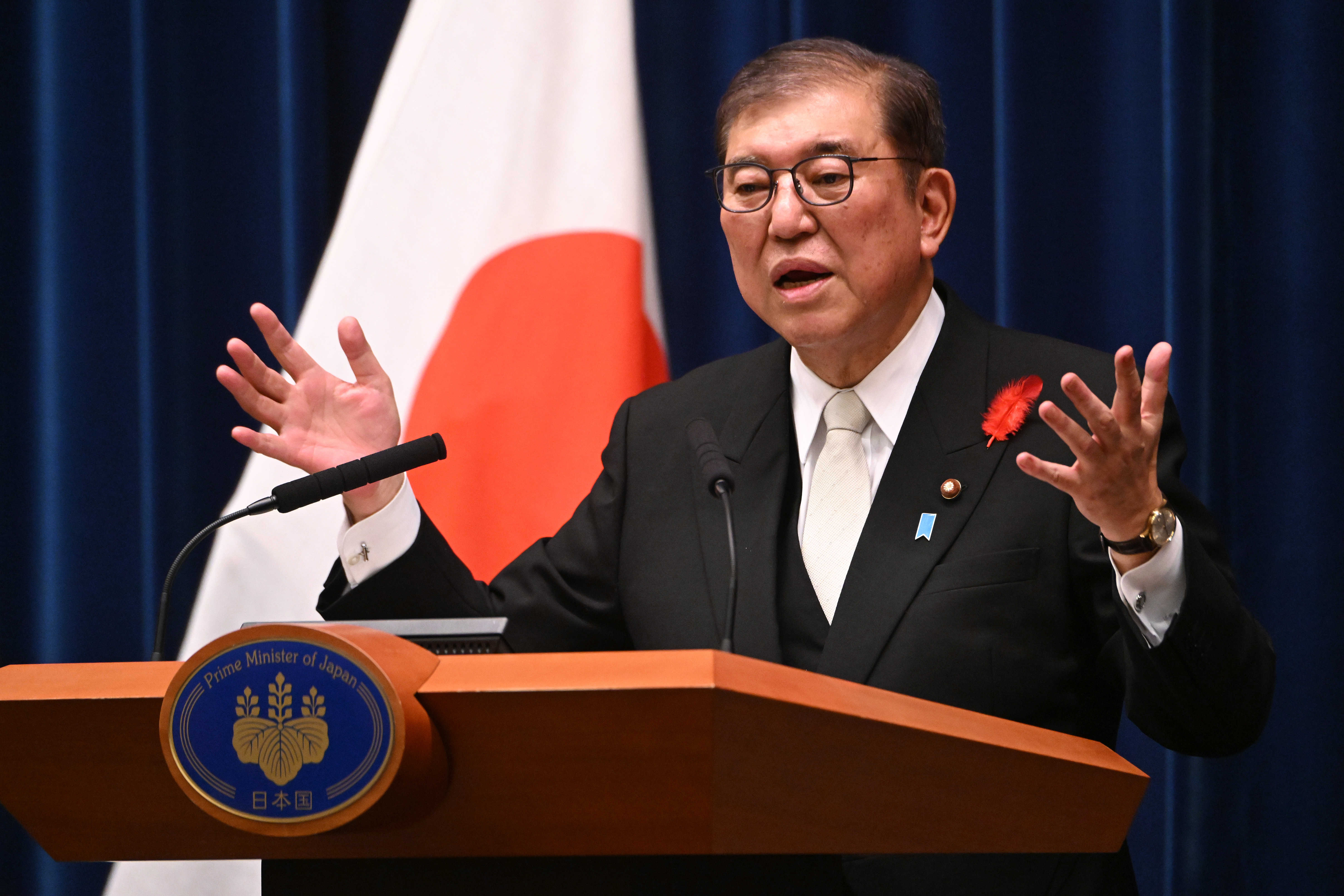Japan: Deciphering Prime Minister Ishiba’s Strategic Vision. Toward an Asian version of NATO?

On Tuesday, October 1, Shigeru Ishiba was sworn in as Prime Minister of Japan. His proposal to revise the security alliance with the United States and create an Asian version of the North Atlantic Treaty Organization (NATO) attracted attention and sparked lively debate.

On October 1, Shigeru Ishiba was sworn in as Prime Minister of Japan. An expert in strategic and defense issues, his proposal to revise the security alliance with the United States and create an Asian version of NATO has sparked heated debate.
Continuing the defense reforms initiated by Shinzo Abe and Fumio Kishida, Ishiba also aims to strengthen Japan’s strategic autonomy by revising Article 9 of the Constitution, rebalancing roles within the Japan-US alliance, diversifying its strategic partners and adopting confidence-building measures with China.
For the time being, the idea of an Asian NATO seems unrealistic; the regional security architecture in the Indo-Pacific appears to be moving less toward a collective defense pact than a system of integrated deterrence, structured around alliances and security pacts. Japan and the Japan-US alliance play a central role in this.

Available in:
Themes and regions
ISBN / ISSN
Share
Download the full analysis
This page contains only a summary of our work. If you would like to have access to all the information from our research on the subject, you can download the full version in PDF format.
Japan: Deciphering Prime Minister Ishiba’s Strategic Vision. Toward an Asian version of NATO?
Related centers and programs
Discover our other research centers and programsFind out more
Discover all our analyses
RAMSES 2024. A World to Be Remade
For its 42nd edition, RAMSES 2024 identifies three major challenges for 2024.
France and the Philippines should anchor their maritime partnership
With shared interests in promoting international law and sustainable development, France and the Philippines should strengthen their maritime cooperation in the Indo-Pacific. Through bilateral agreements, expanded joint exercises and the exchange of best practices, both nations can enhance maritime domain awareness, counter security threats and develop blue economy initiatives. This deeper collaboration would reinforce stability and environmental stewardship across the region.

The China-led AIIB, a geopolitical tool?
The establishment of the Asian Infrastructure Investment Bank (AIIB) in 2016, on a Chinese initiative, constituted an attempt to bridge the gap in infrastructure financing in Asia. However, it was also perceived in the West as a potential vehicle for China’s geostrategic agendas, fueling the suspicion that the institution might compete rather than align with existing multilateral development banks (MDBs) and impose its own standards.
Jammu and Kashmir in the Aftermath of August 2019
The abrogation of Article 370, which granted special status to the state of Jammu and Kashmir (J&K), has been on the agenda of the Bharatiya Janata Party (BJP) for many decades.







